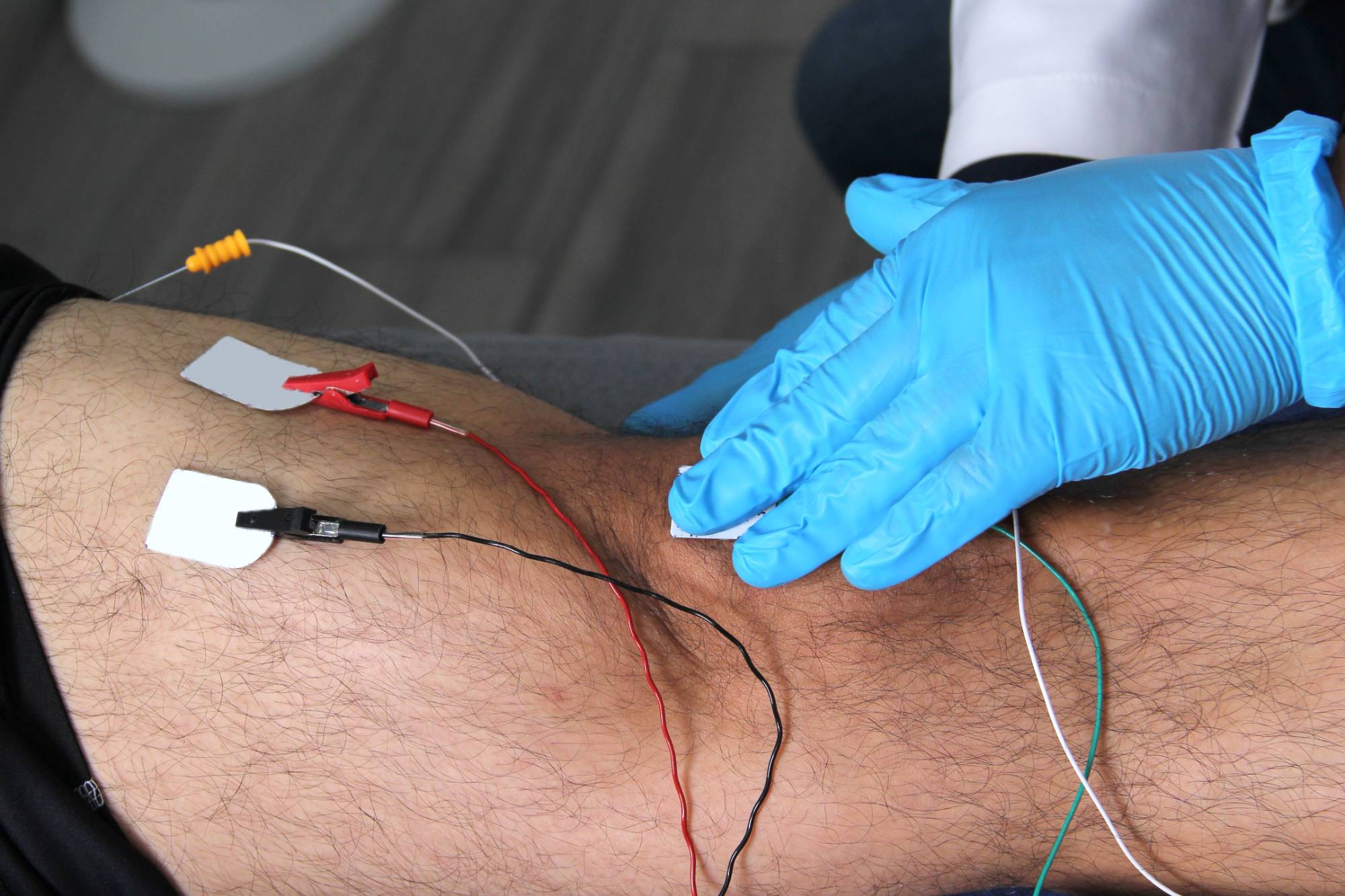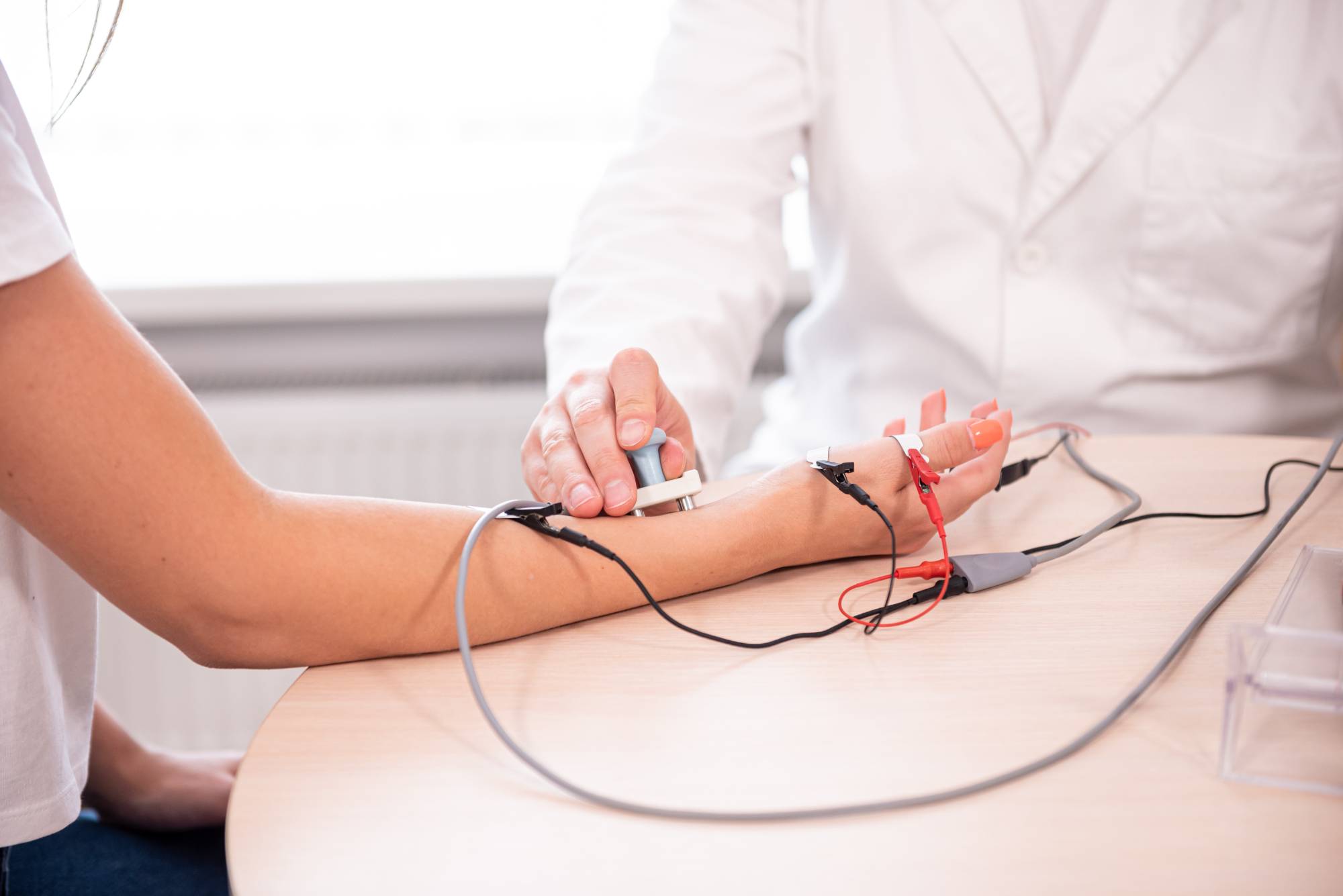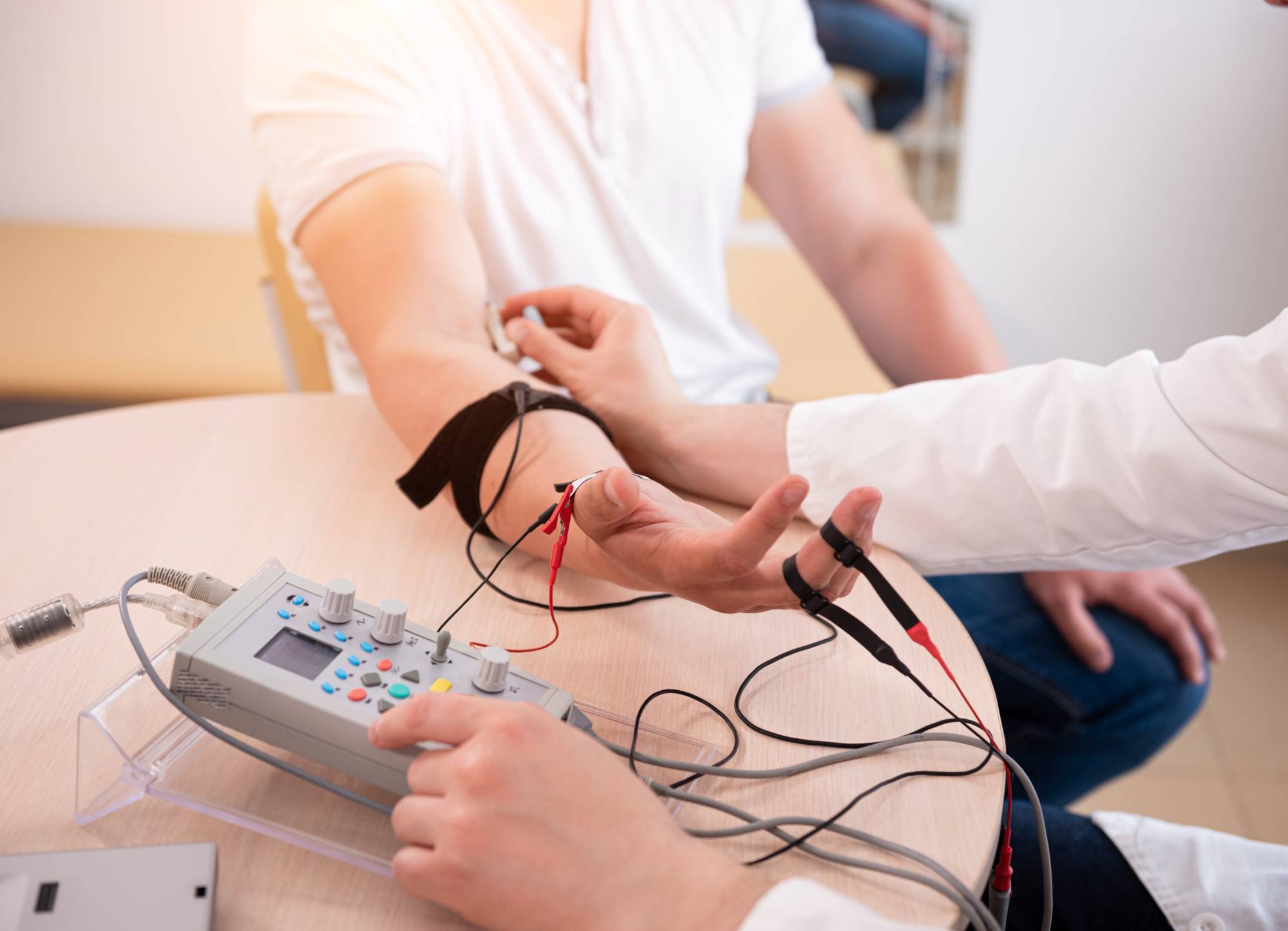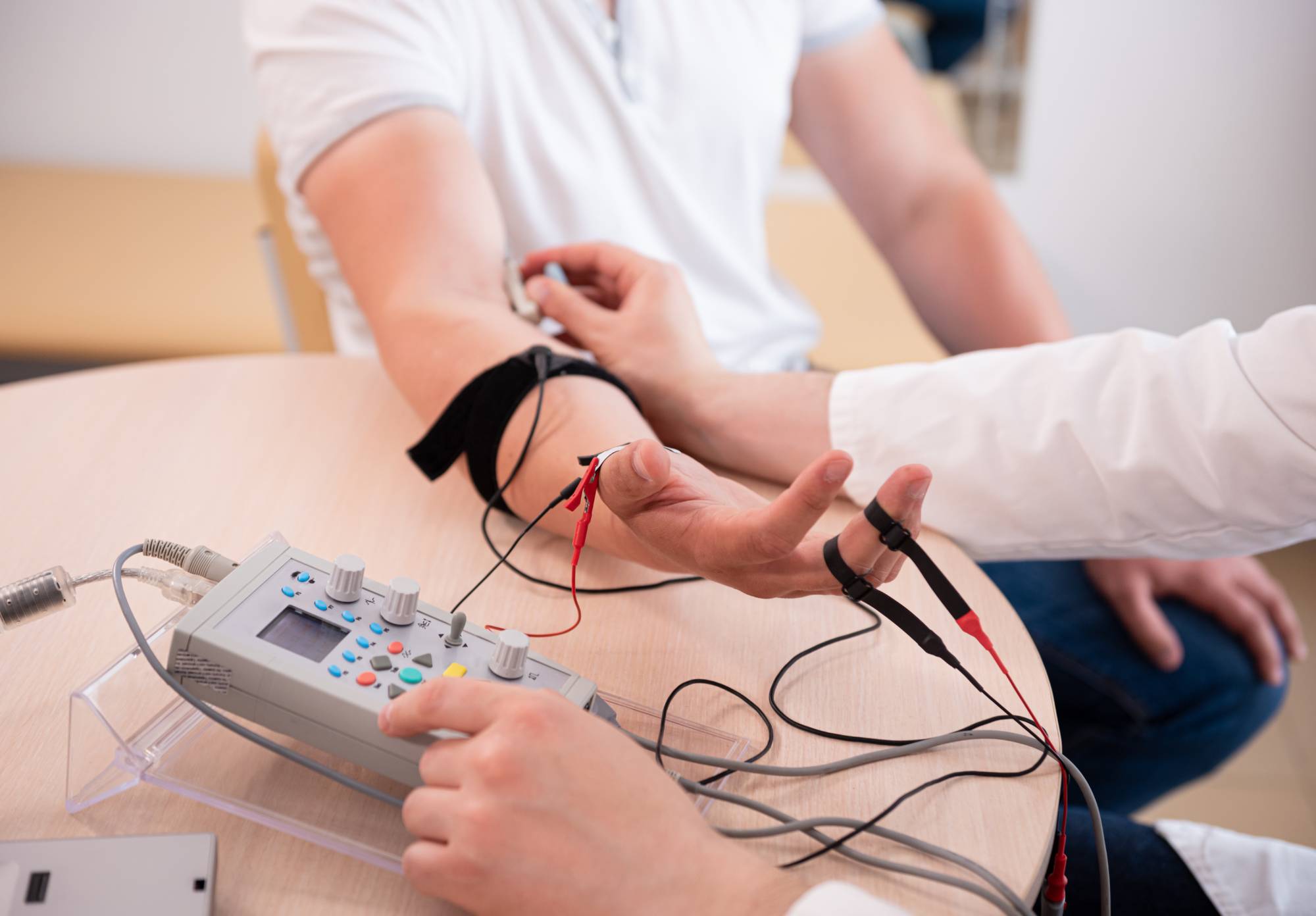Advanced electromyography testing that pinpoints exactly what’s causing your muscle weakness, numbness, or pain.

Reviews

You’ve been dealing with symptoms that don’t make sense. Muscle weakness that comes and goes. Numbness in your hands or feet. Pain that shoots down your leg. Your doctor suspects a nerve or muscle problem, but you need concrete answers.
EMG testing and nerve conduction studies give you those answers. These diagnostic tests measure how well your nerves and muscles communicate, revealing conditions like carpal tunnel syndrome, pinched nerves, peripheral neuropathy, or muscle disorders that other tests might miss.
When you know exactly what’s causing your symptoms, you can move forward with the right treatment instead of guessing. No more wondering if it’s serious. No more trying treatments that don’t address the real problem.
We’ve been serving the Wakefield community with advanced diagnostic testing for years. Our physicians are board-certified specialists who understand that getting accurate results the first time matters more than anything else.
You’re not just getting a test – you’re getting expert interpretation of what those results mean for your specific situation. We take time to explain findings in plain language and discuss your options moving forward.
Located right in Wakefield, you don’t need to travel to Manhattan or deal with hospital wait times to get the answers you need.

Your EMG testing appointment typically takes 30-60 minutes and involves two parts. First, the nerve conduction study uses small electrical pulses to measure how fast signals travel through your nerves. You’ll feel brief, mild sensations – most patients describe it as similar to static shock.
Next, the electromyography portion uses a thin needle electrode to record electrical activity in your muscles. The needle is much smaller than those used for blood draws, and any discomfort is minimal and brief.
Throughout the test, we explain what’s happening and what the readings show. You’ll get your results immediately, along with a clear explanation of what they mean and recommended next steps for treatment.

Ready to get started?
Our testing evaluates a wide range of conditions affecting nerves and muscles throughout your body. Whether you’re dealing with suspected carpal tunnel syndrome, sciatica, diabetic neuropathy, or unexplained muscle weakness, EMG and nerve conduction studies can identify the problem.
Many Wakefield patients come to us after months of uncertainty about symptoms that interfere with work, sleep, or daily activities. Our testing is particularly valuable for detecting early-stage nerve damage that might not show up on MRI or X-rays.
You’ll receive a detailed report of findings that you can share with your referring physician or specialist. The results often provide the missing piece needed to develop an effective treatment plan.

New York:
Florida:
Support